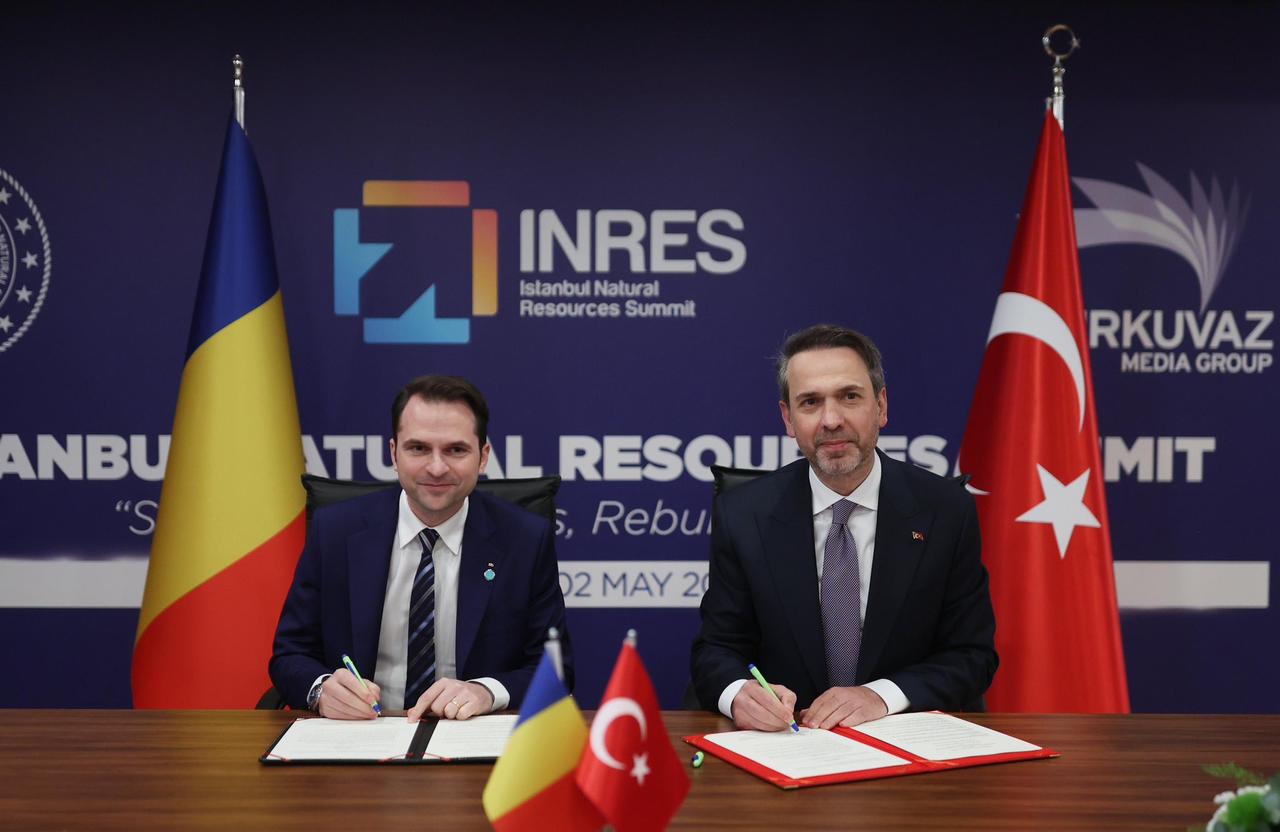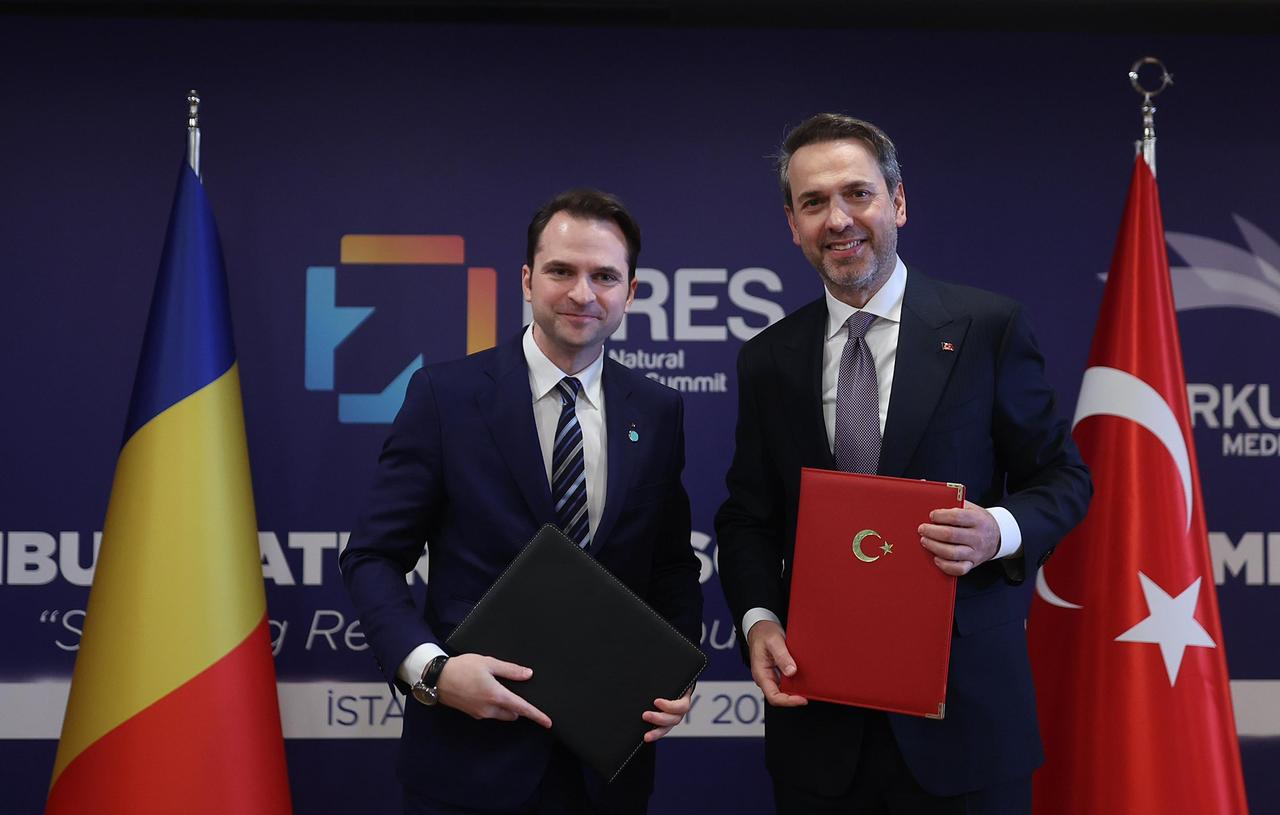
Romania and Türkiye formalized their first energy cooperation deal, which includes provisions for emergency natural gas imports to Romania of up to 4 million cubic meters (141.25 million cubic feet) per day, according to Romanian Energy Minister Sebastian Burduja.
Minister Burduja revealed the development following his participation in the International Natural Resources Summit held in Istanbul last week, where he was hosted by his Turkish counterpart, Alparslan Bayraktar. “It was a results-driven meeting where we explored cooperation across natural gas security, green energy investments, and cross-border infrastructure,” he stated in a Facebook post on Tuesday.

He noted that the newly signed memorandum allows for flexible gas deliveries from Türkiye to Romania, particularly in times of urgent need. “This is a stabilizing agreement in a complex regional context,” Burduja added.
In addition to the gas import agreement, the ministers discussed broader energy topics, including the status of the Neptun Deep offshore gas project in the Black Sea and progress on the Tuzla–Podisor pipeline, which is crucial for connecting new gas sources to Romania’s network. Turkish investors also expressed interest in Romania’s renewable energy sector, particularly in solar and wind projects, Burduja said.
Despite Romania’s official halt on Russian gas imports since 2022, concerns remain about the true origin of gas transiting through Türkiye. According to the Romanian news outlet HotNews, during a press conference earlier this year, Minister Burduja acknowledged that gas entering Romania from Türkiye via Bulgaria could potentially originate from Russia, though it is labeled as Turkish.
“From what we know, the suppliers assure us this is not Russian gas. They hold certificates of origin, and Romania’s energy regulator, ANRE, is able to analyze and verify this,” he said at the time.
Highlighting the complexity of tracing energy sources, Burduja noted: “A gas molecule doesn’t carry a flag. Türkiye imports gas from both Azerbaijan and the Russian Federation, but when it enters their system, it’s considered Turkish gas regardless of origin.”